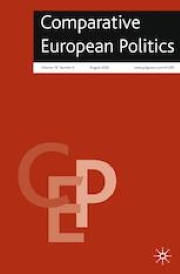Abstract
This study contributes to the literature on informal governance by examining politics of informal agenda-setting in the European Commission. As a ‘hard case’, the paper examines how the European Commission exceeds limited legal Treaty provisions in foreign and security policy (CFSP). This system, where the Commission has come to play a more prominent role than stipulated in the treaties, is interpreted as a normalization of CFSP governance. Three complementary propositions on the informal agenda-setting role of the Commission are developed: agenda leadership (#1), coalition-building (#2), and community framing (#3). To illuminate these propositions, we examine their relevance across three empirical cases: (i) EU’s Maritime Security Strategy (EUMSS), (ii) EU’s Arctic policies, and (iii) EU’s naval mission against human smuggling in the Mediterranean, EU Sophia. These cases suggest that informal agenda governance by the European Commission is mainly shaped by agenda leadership in combination with EU-level coalition-building, but also strengthened by community framing.
Full info
Marianne Riddervold and Jarle Trondal
The Commission’s informal agenda-setting in the CFSP. Agenda leadership, coalition-building, and community framing
Comparative European Politics, 2020
DOI: 10.1057/s41295-020-00218-1
